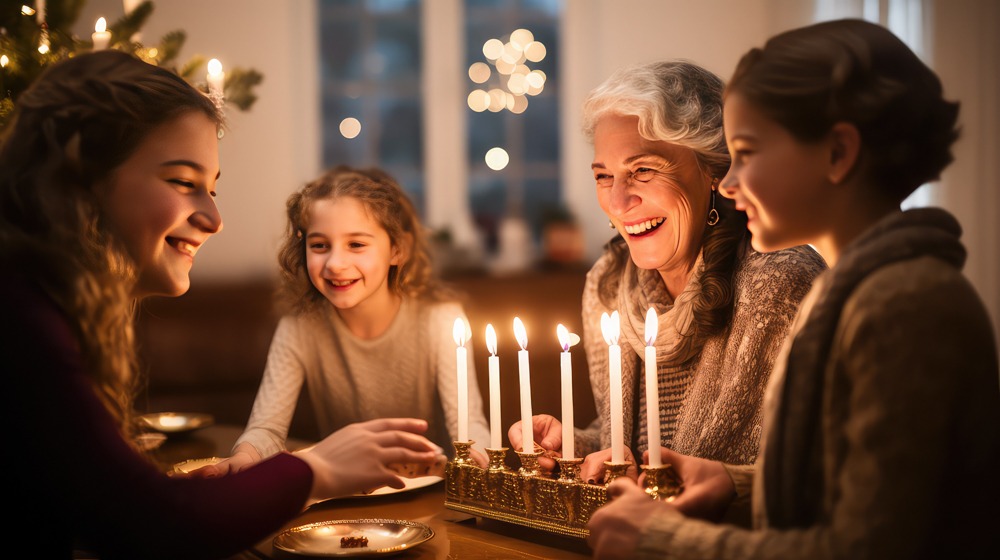The holiday season, while festive and joyful, can be a high-risk period for those in recovery. The combination of heightened stress, increased social obligations, and frequent exposure to substances can create a perfect storm of triggers. Family dynamics, loneliness, and financial pressures often add to the emotional load, making it essential to approach this season with caution and preparation so you can enjoy your holidays in sobriety.
Discover how to create a holiday relapse prevention plan this season as we explore holiday triggers, the importance of a plan and boundaries, and tips for celebrating sober.
Table of Contents
ToggleThe Importance of a Relapse Prevention Plan
A relapse prevention plan is a strategy individuals create to help them stay sober even when tempted by substances or other harmful behaviors. Building a relapse prevention plan is often part of rehab programs and is customized to sure it’s efficacy. Around the holiday season, people’s schedules may change as they attend parties and other festive activities. This is why having a plan that addresses your triggers and is tailored to your specific needs is crucial for the holiday season.
A holiday relapse prevention plan acts as a safety net, providing structure and clarity. It equips you with the tools needed to navigate difficult moments, reinforcing your commitment to recovery. Because the holiday season can bring up a variety of emotions, your relapse prevention plan must address these feelings you may experience during the winter season.
How To Create a Holiday Relapse Prevention Plan
A holiday relapse prevention plan can help ensure you stay sober while celebrating the holidays. Follow these steps to create your prevention plan:
1. Understand Your Triggers During the Holiday Season
Identifying personal triggers is a critical first step in staying sober during the holidays. Relapse triggers vary from person to person, but common ones include:
- Family conflicts: Old tensions or unresolved issues may resurface at gatherings.
- Social settings: Alcohol and other substances are sometimes prevalent at parties and celebrations.
- Stress and anxiety: Financial strain or the pressure to meet holiday expectations can lead to overwhelm.
- Loneliness or isolation: Feelings of being left out or not belonging can intensify during this season.
Taking the time to pinpoint what has challenged your sobriety in the past helps you anticipate and plan for these situations and create a prevention plan.
2. Identify People, Places, and Situations to Avoid
Some people and places may be more likely to challenge your pledge to sobriety. Avoiding high-risk scenarios is a proactive way to protect your lifestyle after addiction treatment. Examples include:
- People who enable or encourage substance use.
- Places associated with past substance use, such as bars or certain homes.
- Situations where substances will be present, unless you have strong support and a clear exit plan.
By steering clear of these risks, you can focus on safer, healthier environments.
3. Maintain Support Systems During the Holidays
A support system is a network of tools and people that you trust to help you stay sober. Your support network is invaluable during challenging times. Lean on them by:
- Attending extra meetings: Many recovery groups offer additional sessions during the holidays.
- Connecting regularly: Check in with sponsors, mentors, or sober friends.
- Exploring online resources: Virtual meetings and forums can provide extra support.
4. Set Boundaries With Friends and Family
Healthy boundaries protect your recovery and well-being:
- Communicate clearly: Let loved ones know your needs, such as a substance-free environment.
- Say no when needed: It’s okay to decline invitations or step away from situations that feel unsafe.
- Prioritize your time: Balance social obligations with personal time for reflection and self-care.
While it’s important to be sure you take care of yourself first, you can also support your loved ones during the holiday season by communicating your needs and sharing resources.
5. Plan Healthy Alternatives to Holiday Traditions Involving Substances
Navigating social events while staying sober is possible with preparation. Creating new, sober traditions can make the holidays enjoyable:
- Host alcohol-free gatherings: Invite loved ones to celebrate in a safe environment.
- Explore new activities: Try cooking, volunteering, or attending sober holiday events.
- Focus on meaning: Embrace the spiritual or emotional aspects of the season.
- Have non-alcoholic options: Bring your own beverages to parties to ensure you have safe choices.
6. Create a Holiday-Specific Emergency Plan for Cravings
While you may already have a plan for managing cravings, creating one specific to the holidays is essential. Here is how you can reinforce your emergency plan for cravings during the holidays:
- Recognize warning signs. Be alert to changes in mood or behavior that signal a potential lapse.
- Develop an action plan. Keep a written copy of emergency steps like calling your sponsor or leaving a triggering situation.
- Carry reminders. Keep motivational quotes or tokens with you to reinforce your commitment to sobriety.
7. Stay Accountable During the Holiday Season
Accountability strengthens your recovery. It gives you more power in your recovery journey, as you can choose to be responsible for your recovery. Stay accountable during the holiday season by:
- Check in regularly. Schedule calls or meetings with your sponsor or recovery group.
- Track progress. Keep a journal to monitor emotions, triggers, and successes.
- Share your goals. Let trusted friends and family know how they can help you stay on track.
8. Practice Self-Care to Reinforce Relapse Prevention
Self-care is essential for physical and emotional resilience. Being mindful of your mental and physical health can help you stay in recovery. Follow these tips to practice self-care:
- Make time for relaxation: Enjoy activities that help you unwind, such as reading or walking.
- Nurture your health: Eat well, exercise, and get plenty of sleep.
- Seek joy: Spend time with people or hobbies that bring happiness.
Tips for Managing Holiday Stress and Emotional Triggers

Holidays can bring added stress, even for those not in recovery. During this time, it’s helpful to have stress management and emotional regulation techniques. Consider these strategies:
- Practice mindfulness. Techniques like meditation or deep breathing can reduce anxiety.
- Stick to routines. Consistent daily habits provide stability.
- Engage in self-care. Prioritize sleep, exercise, and nutrition. This can help ensure your body feels its best.
- Decline unwanted plans. The holidays can mean more invites to parties and festivities. It may be overwhelming to attend them all, so practice saying no to some plans.
- Create a relaxing atmosphere. Keep your space tidy and decorate with items that make you feel happy and at peace to promote a more relaxing space for yourself.
- Focus on the positive. Celebrate small wins and moments of joy throughout the season.
- Communicate needs: Let loved ones know what you need to feel safe and supported.
- Set realistic expectations. Unrealistic expectations can lead to disappointment and stress. Instead, strive for balance and recognize that not every holiday will be perfect.
Celebrating Your Sobriety During the Holidays
Your sobriety is an achievement worth celebrating:
- Acknowledge milestones: Reward yourself for staying committed to recovery.
- Reflect on progress: Take pride in how far you’ve come since starting your journey.
- Share gratitude: Express appreciation to those who have supported you.
Resources for Help If You Struggle During the Holidays
The holiday season doesn’t have to jeopardize your recovery. With a thoughtful holiday relapse prevention plan, you can navigate this time with confidence and resilience. By understanding your triggers, building a strong support network, and embracing healthy traditions, you can create a season filled with growth, gratitude, and sober celebration. Remember, each day of sobriety is a success—and the holidays are an opportunity to reinforce your commitment to a healthier, happier life.
At Agape Detox Center, we’re dedicated to your recovery journey. Help is always available if you find yourself struggling. Though the holidays are meant to be a joyful time of the year, it’s normal to feel additional stress during these winter months. If you feel that the holidays are impacting your mental health and threatening your sobriety, it’s crucial to seek help. Here’s a few ways Agape can be there for you:
Cognitive Behavioral Therapy
Dialectical Therapy
Dual Diagnosis Inpatient Treatment

Stephanie Robilio is an accomplished Clinical Director at Agape Behavioral Healthcare. With a Master of Social Work degree, LCSW license, and extensive training in Rapid Resolution Therapy under her belt, she brings a wealth of expertise to her role. Her unique combination of education and experience allows her to provide exceptional care to clients and lead her team with confidence. Stephanie’s joy comes from witnessing the moments when her patients creatively connect the dots and bravely move toward reclaiming their power. Her purpose is to help individuals understand their past so they can create a future full of hope, growth, and success. Stephanie attributes a large portion of her success to the supportive culture and strong sense of community fostered by the Agape team.





